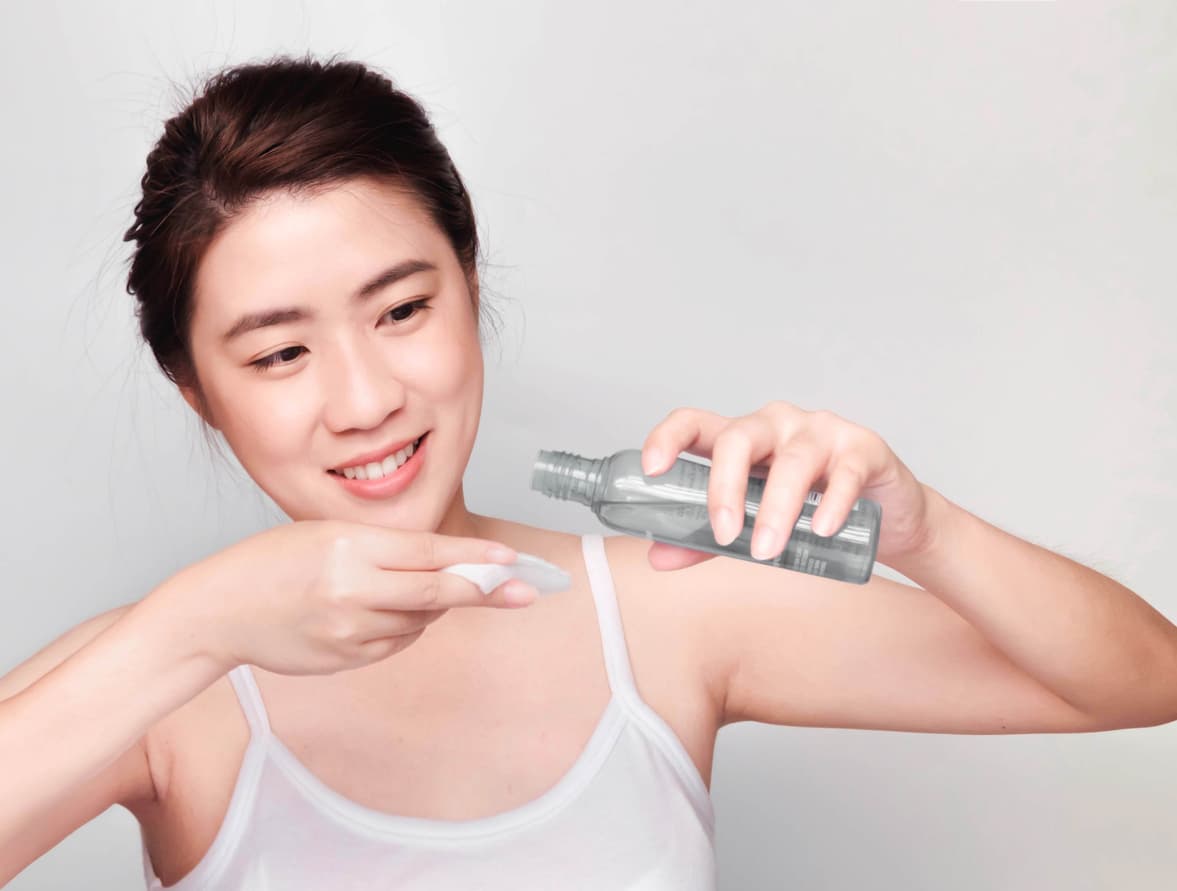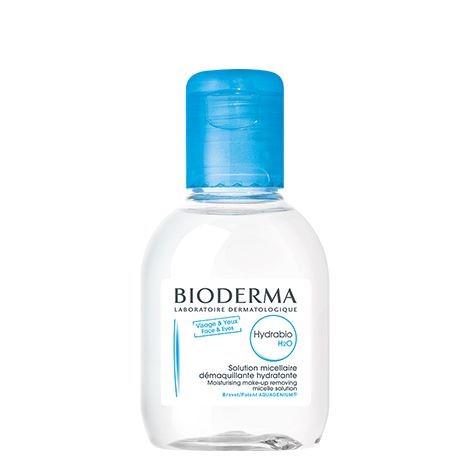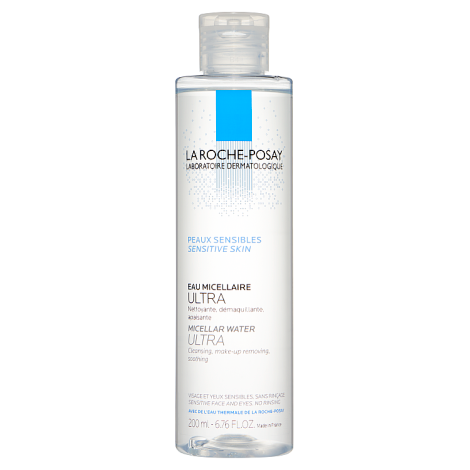La Roche-Posay Miceller vs Bioderma Hydrabio H2O
La Roche-Posay & Bioderma are both popular French brands designed for sensitive skin. Read our guide to La Roche-Posay Miceller vs Bioderma Hydrabio H20 with fantastic reputations for providing effective, high-quality skincare products for sensitive skin. When it comes to cleansing waters, both brands offer top quality products for removing makeup. But which type of micellar water is more ideal for your skin?
In this guide, we’ll outline the differences between La Roche-Posay Effaclar Micellar Water and Bioderma Hydrabio H20 Micellar Water. We’ll explain how to use each product, help you figure out which cleanser is right for your skin, and answer some frequently asked questions on using micellar water.
Click on a link to jump to that section:
Comparing the product aims, ingredients, scent and application of each product.
Read our guide to choosing the best micellar water for your skin type.
Frequently asked questions on including micellar water in your skincare routine.
Comparing La Roche-Posay and Bioderma micellar waters
Product aims
La Roche-Posay’s Effaclar Micellar Water is designed to remove make-up, dirt, sebum and impurities from the skin without drying it out. It has been designed with combination and oily skin in mind since it helps to control excess sebum without leaving skin dry and tight.
Bioderma Hydrabio H20 Micellar Water also cleanses makeup and dirt, but it is designed for generally sensitive or dry skin rather than oily or combination skin. It doesn’t aim to control excess sebum, but it does soothe and calm the skin. As the name ‘Hydrabio’ suggests, it helps to hydrate and nourish the skin.
Ingredients
The key ingredient in La Roche-Posay Effaclar is glycerin while the Bioderma Hydrabio contains glycerin, niacinamide and tocopherol, and it’s the addition of these two latter ingredients which help Bioderma’s product to hydrate the skin more than La Roche-Posay’s offering. Bioderma water has a very silky, slippery texture and leaves the skin feeling soft and protected. La Roche-Posay water provides a more mattifying finish, but that doesn’t mean to say it leaves the skin feeling too dry or tight.
La Roche-Posay water contains thermal spring water, has a pH level that matches that of the skin, and it doesn’t contain parabens, soap, colourants, lanolin or preservatives which could irritate the skin. This makes it a great choice for those with sensitive skin. Bioderma also works to maintain a healthy pH balance, and it contains apple seed oil which helps to nourish the skin. Both products contain fragrance, but since they are formulated with sensitive skin in mind, they are gentle enough for most skin types.
Scent
Both of these micellar waters contain fragrance, but since they are formulated with sensitive skin in mind, they are gentle enough for most skin types. The Bioderma water has a particularly strong fragrance and therefore may not be suitable for those who dislike heavily scented skincare products.
How do you use these cleansing waters?
Like many micellar waters, both Effaclar and Hydrabio should be applied to a cotton pad and wiped gently over the neck and face. Both can be used on the eyes to remove eye makeup. There is no need to rinse the products after application, although you may wish to gently dry off the skin with a clean towel after cleansing with the micellar waters.

Which product is right for you?
The key difference between these two cleansing products is the skin types they are targeted at. La Roche-Posay cleansing water is ideal for those with oily skin, while Bioderma water is better suited for those with dry skin. If you have acne-prone skin and want to control blemishes, La Roche-Posay is the most suitable choice. If your skin is very dry, opt for Bioderma instead.
It’s important to note that both products are good for sensitive skin, so if you have normal or combination skin that is susceptible to irritation, it’s likely that both products are suitable for you. If you dislike the feel of cleansers that leave skin feeling tight and dry, you won’t have that problem with either of these waters, but the Bioderma has a particularly hydrating texture that you might find preferable.
Another big difference between these products is the price. Bioderma offers better value for money, and this might be an important factor to consider for a product you will likely use every day. However, the oil-controlling benefits of La Roche-Posay might make the extra expense worthwhile for those with acne-prone skin.
Bioderma Hydrabio H2O

- Soothes & Moisturises
- Soothing active ingredients & cucumber extract
- Hydrates & stimulates moisturise
- Highly purifying water, with pharmaceutical
- Quality
- 100% safe for the skin (pH?5)
- Cleanses & removes makeup
- Gently cleanses face & eye
La Roche Posay Micellar Water

- Delicately eliminates impurities and removes make-up.
- Skin feels cleansed and soothed
- Soap-Free
- Alcohol-Free
- Colour Free
Micellar water FAQs
Can you use Bioderma micellar water as a toner?
Bioderma Hydrabio is suitable for use as a toner and might be a particularly good toner choice for those with dry skin since it nourishes and hydrates the skin, while many typical toners strip away oils and leave skin feeling dry and tight.
You can shop our full range of toners here.
Is micellar water good for acne?
Micellar water can help to control acne since it is designed to unclog pores and cleanse impurities which could lead to pimples. However, if controlling blemishes is an important factor for you, it is always a good idea to choose micellar water that is specifically targeted at oily or acne-prone skin, such as La Roche-Posay Effaclar.
Do dermatologists recommend micellar water?
Many dermatologists recommend micellar water for people with sensitive skin as it is a gentle and hydrating cleansing method. It is often recommended for use as part of a double-cleanse routine, whereby the micellar water is first used to remove the day’s makeup and grime before another water-based cleanser delivers a deeper clean. This can help to thoroughly unblock pores and keep skin blemish-free.
Does micellar water burn skin?
Micellar waters are generally designed to be gentle and hydrating; they should not cause redness or create a burning sensation. La Roche-Posay and Bioderma micellar waters are particularly gentle, and unless you have a sensitivity to any of the ingredients in these products, it is unlikely that they will irritate the skin.
Is micellar water better than makeup wipes?
Makeup wipes often contain alcohol and aren’t very effective in removing makeup which leads to them being scrubbed across the skin, causing irritation and redness. Micellar water has a slippery texture which allows it to glide across the skin and remove makeup and grime more effectively. Micellar water, therefore, tends to be the better option both in terms of protecting the skin and cleansing more efficiently.
What is the right way to care for sensitive skin?
To protect sensitive skin and reduce the risk of redness, blemishes and irritation try:
- Using warm water instead of hot water when rinsing the skin
- Avoiding fragrances, astringent ingredients (such as alcohol) and harsh exfoliants in makeup and beauty products
- Choosing skincare products from brands that specialise in sensitive skin, such as Bioderma, La Roche-Posay and Avène.
- Moisturising skin with a gentle face cream
- Wearing sunscreen
Are you supposed to wash off micellar water?
Most micellar waters are designed to provide an easy way to cleanse the skin and do not need to be rinsed. However, it can be helpful to use micellar water as part of a double-cleanse routine, particularly if you are susceptible to blemishes. You could try cleansing the skin with another water-based cleanser or simply rinsing the skin with clean water after using micellar water.
Is micellar water a cleanser or a toner?
Although not strictly a toner, micellar water can be used as a toner. It is designed primarily for removing makeup, dirt and impurities which makes it a cleanser, but it could be used as a toner to clean out pores more deeply after cleansing with a water-based product. This is a particularly good solution for those with very dry skin who find normal toners too harsh.

